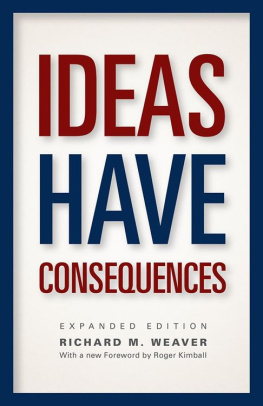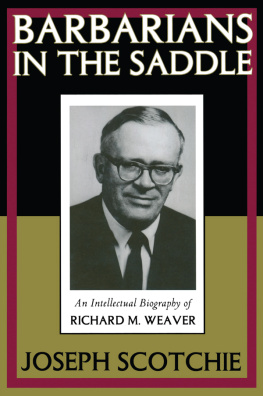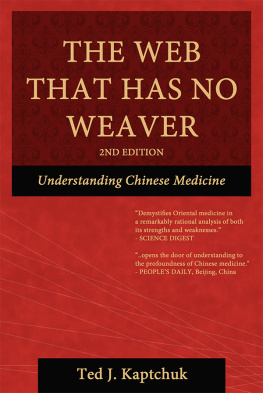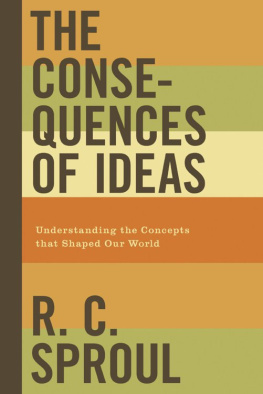Richard M. Weaver (191063) was an American scholar, revered twentieth-century conservative, and professor of English and rhetoric at the University of Chicago. He is the author of several books, including The Ethics of Rhetoric and Visions of Order: The Cultural Crisis of Our Time.
The University of Chicago Press, Chicago 60637
The University of Chicago Press, Ltd., London
1948, 2013 by The University of Chicago
Foreword 2013 by Roger Kimball
All rights reserved. Published 2013.
Printed in the United States of America
23 22 21 20 19 18 17 16 15 14 1 2 3 4 5
ISBN-13: 978-0-226-09006-1 (paper)
ISBN-13: 978-0-226-09023-8 (e-book)
DOI: 10.7208/chicago/9780226090238.001.0001
An earlier version of the foreword appeared as The Consequences of Richard Weaver by Roger Kimball in The New Criterion, September 2006.
The afterword was originally published in Steps toward Restoration: The Consequences of Richard Weavers Ideas, edited by Ted J. Smith III (ISI Books, 1998), pp. 133. Reprinted by permission of ISI Books.
Library of Congress Cataloging-in-Publication Data
Weaver, Richard M., 19101963, author.
Ideas have consequences / Richard M. Weaver. Expanded edition.
pages cm
Includes bibliographical references.
ISBN 978-0-226-09006-1 (paperback : alkaline paper) ISBN 978-0-226-09023-8 (e-book)
1. CivilizationPhilosophy. I. Title.
CB19.W4 2013
901dc23
2013019828
 This paper meets the requirements of ANSI/NISO Z39.48-1992 (Permanence of Paper).
This paper meets the requirements of ANSI/NISO Z39.48-1992 (Permanence of Paper).
IDEAS HAVE CONSEQUENCES
EXPANDED EDITION
Richard M. Weaver
The University of Chicago Press
Chicago and London
CONTENTS
By Roger Kimball
By Richard M. Weaver
By Ted J. Smith III
THE CONSEQUENCES OF RICHARD WEAVER
By Roger Kimball
The past shows unvaryingly that when a peoples freedom disappears, it goes not with a bang, but in silence amid the comfort of being cared for. That is the dire peril in the present trend toward statism. If freedom is not found accompanied by a willingness to resist, and to reject favors, rather than to give up what is intangible but precarious, it will not long be found at all.
RICHARD WEAVER, 1962
The simple process of preserving our present civilization is supremely complex, and demands incalculably subtle powers.
ORTEGA Y GASSET, 1930
In the great pantheon of half-forgotten conservative sages, the southern writer Richard M. Weaver (191063) occupies an important, if curious, niche. I say writer, but that is an imprecise designation. By trade, Weaver was a professor of rhetoric. He is even the author of a textbook on the subject. One friend said that Weaver was a rhetor doing the work of a philosopher. It might be more accurate to say that he was a critic doing the work of a prophet. Prophets as a species tend to specialize in bad news; they rarely return from the mountain reporting that the management has concluded that everything down below is just fine.
Weaver was no exception to this rule. He made his reputation as a latter-day Isaiah, bearing admonitory tidings to an inattentive populace. Above all, perhaps, he was an acolyte of what he lovingly called lost causes. The fact that a cause had lost, he argued, did not necessarily rob it of nobility; it did not mean that we could not learn something from the ideals that inspired it; it did not even mean that, ultimately, it was really lost. For what is lost might also be regained. It might serve not only as a reminder but also as a model, a new goal. In the longer run, as Weaver put it, what seemed lost might eventually prove victorious.
Such, anyway, were among the explicit rationales that Weaver offered about the value of lost causes. An additional attraction, I suspect, lay in the romance of defeat. Things reveal themselves passing away: Weaver liked to quote that Yeatsian line. I believe he cherished the passing away as much as the accompanying revelation.
Weaver the man wasor becamealmost as eccentric as his work. Born in North Carolina, he was the first of four children. His father, an outgoing man who owned a livery stable, died when Richard was only six and his mother was expecting her last child. The family eventually resettled in Lexington, Kentucky, where his mother managed Embry and Company, a millinery business owned by her brother. Although Weaver became a formidable debater, he was a shy, bookish boy: his sister Polly remembers him sequestered in his bedroom for hours on end with the family typewriter. He blossomed socially in college, though his intellectual vocation seems to have settled upon him only gradually. In an autobiographical essay called Up From Liberalism (1958), Weaver recalls that in his undergraduate years at the University of Kentucky earnest professors had him persuaded entirely that the future was with science, liberalism, and equalitarianism. By the time he graduated, in 1932, the Great Depression had swept the country and Weaver, like many others, had evolved into a full-fledged Socialist. He served as secretary of the campus Socialist Party and, during Norman Thomass presidential campaign, rose to be secretary of the statewide Socialist Party.
His metanoia began at Vanderbilt where he came under the mesmerizing spell of John Crowe Ransom, the subtle doctor to whom he dedicated The Southern Tradition at Bay. First published in 1968, five years after Weavers death, the book began life as a dissertation, completed in 1943 under the great critic Cleanth Brooks, about the postbellum American South, its literature, manners, and aspirations, rooted in the life before the Civil War. The Southern Tradition at Bay is a brilliant, complex, cranky work, part literary criticism, part social commentary, part hortatory injunction. From the bleakness of a socialist bureaucracy, Weaver wrote in his peroration, men will sooner or later turn to something stirring: they will decide again to live strenuously, or romantically. That was the ideal. The route to realizing it was to be found in the Old South, which Weaver proposed as a co-conspirator in the pursuit of his strenuous, romantic oppositions.
As one of Weavers biographers, Fred Douglas Young, notes, The Southern Tradition at Bay was less a dissertation than an apologia. Most of Weavers mature themes make their appearance in the book. Indeed, several critics have pointed out that Weavers later work is essentially an elaboration and application of ideas he first formulated there. Weaver begins by laying out a constellation of four distinctively Southern, almost universally besieged, virtues: the feudal concept of society organized by an interlocking hierarchy of duties, filiations, and privileges; the code of chivalry; the ancient concept of the gentleman; and religion or at least religiousness, which may have little relation to creeds but, prodded by a sense of the inscrutable, leaves man convinced of the existence of supernatural intelligence and power, and leads him to the acceptance of life as mystery.
But that scaffolding describes only one level of Weavers argument. For every lost cause there is a victorious alternative. Weaver was interested in analyzing, elaborating, advocating what he took to be the virtues of the Old South; even more, he was interested in criticizing the forces that had undermined those virtues. The enemy, he thought, was not so much Grants and Shermans armies as the spirit that moved them. It was science and technology. It was centralized government. It was the ethic of total war. It was affluence, materialism, and the love of comfort. It was the demand for homogenization and equality, a disorganizing concept, Weaver writes, in so far as human relationships mean order. Participation is open to allto this extent, he acknowledges, the doctrine of equality is sound. But however we allow men to start in the world, we may be sure that as long as standards of quality exist, there will be a sorting out. It is the same with the relationship between the sexes: the demand for equality between the sexes, Weaver thought, was part of the decadence of our age. In a word, Weavers enemy was modernity. Hence the lessons of Americas premier lost cause: The mind of the South, Weaver wrote, is conspicuous for its resistance to the spiritual disintegration of the modern world. Is such resistance futile? Never mind. Resistance itself is glorious: strenuous, romantic, precisely becauseperhaps one should say even ifits futile.
Next page










 This paper meets the requirements of ANSI/NISO Z39.48-1992 (Permanence of Paper).
This paper meets the requirements of ANSI/NISO Z39.48-1992 (Permanence of Paper).